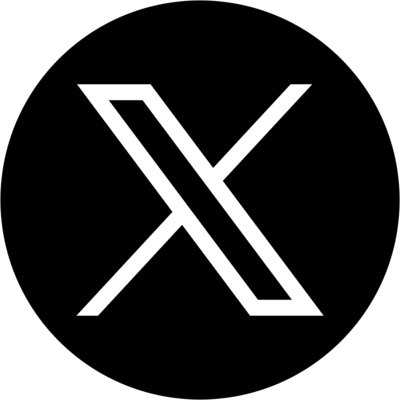AI-Driven Lifestyle Tools: How to Track Your Health Progress Effectively
Did you know that artificial intelligence (AI) is transforming the way we track and improve our health? With personalized AI-driven tools at our fingertips, tracking everything from fitness goals to mental well-being has never been easier. These innovative technologies provide real-time insights, helping you make smarter, data-driven decisions about your lifestyle. In this blog post, we will explore the benefits of AI in health tracking, guide you through the steps to use these tools effectively, and recommend the best practices to get the most out of them.
Key Benefits of AI-Driven Health Tracking Tools
- Personalized Insights: AI learns from your habits and preferences, providing tailored recommendations to optimize your health.
- Real-Time Monitoring: AI tools track your progress 24/7, providing up-to-date information on your health metrics.
- Data-Driven Decisions: With AI, you can analyze trends and patterns in your health data to make informed choices.
- Convenience: Many AI health tools sync with wearables and apps, making it easy to monitor your health on the go.
- Goal Achievement: AI helps you set and track specific goals, from fitness milestones to stress management.
Step-by-Step Guide to Using AI-Driven Lifestyle Tools
- Choose the Right AI Tool for Your Needs
Start by selecting an AI tool that aligns with your health goals, whether it’s fitness, sleep, or mental well-being. Popular apps like MyFitnessPal or SleepScore offer personalized recommendations based on your data. - Integrate Wearables or Health Apps
Pair your AI tool with wearables such as smartwatches or fitness trackers (e.g., Fitbit, Apple Watch). This allows the AI to collect data in real time, offering accurate insights. - Set Your Health Goals
Define clear, achievable health goals. Whether it’s losing weight, increasing your daily steps, or improving sleep, the AI will help you stay on track with reminders and tips. - Track and Monitor Your Progress
Regularly check the progress through your AI tool’s dashboard. Use the app’s tracking features to log meals, workouts, sleep, and more. - Review AI-Generated Reports
AI tools offer reports that show trends and patterns in your data. Use these insights to make adjustments to your routine, whether it's increasing workout intensity or adjusting your diet. - Act on Recommendations
AI will often provide suggestions for improvement. Implement these recommendations into your lifestyle, such as adding more protein to your diet or improving your sleep environment. - Reassess and Set New Goals
Once you’ve achieved your current goals, use the AI tool to set new ones. Reevaluate your progress and adjust your approach as needed.
Best Practices for Using AI-Driven Health Tools
Consistency is Key: For AI tools to provide accurate insights, you need to consistently input data. This includes tracking meals, workouts, and sleep patterns.
Customize Your Preferences: Many tools allow you to tailor settings to your specific needs. Adjusting the preferences ensures the recommendations are more relevant and actionable.
Combine Data Sources: Use multiple AI tools in conjunction with each other (e.g., pairing a fitness tracker with a sleep tracking app) to get a more comprehensive view of your health.
Stay Open to Adjustments: AI recommendations evolve over time as it gathers more data. Don’t be afraid to make adjustments based on these insights.
Privacy First: Ensure the apps you use have strong privacy policies, as they will be collecting sensitive health data.
Comparison Table of Top AI Health Tools
| Tool | Primary Focus | Key Features | Best For |
|---|---|---|---|
| MyFitnessPal | Nutrition & Fitness | Calorie tracking, workout logging, goal setting | Weight loss & fitness |
| SleepScore | Sleep Tracking | Sleep quality analysis, improvement suggestions, sleep score | Better sleep quality |
| Fitbit | Activity & Health Tracking | Daily step count, heart rate monitoring, sleep tracking | Fitness enthusiasts |
| Headspace | Mental Well-being | Guided meditation, sleep aids, stress management techniques | Stress & mental health |
| Whoop | Fitness & Recovery | Heart rate monitoring, strain & recovery tracking, sleep data | Athletes & fitness tracking |
Frequently Asked Questions (FAQs)
- Q1: What is the best AI tool for tracking my fitness progress?
- A1: MyFitnessPal and Fitbit are great options for fitness tracking. MyFitnessPal allows you to log your meals and workouts, while Fitbit offers comprehensive activity monitoring and heart rate tracking.
- Q2: How does AI help with sleep tracking?
- A2: AI tools like SleepScore analyze your sleep patterns, providing insights into your sleep quality. They offer suggestions to improve your sleep environment and habits, which can lead to better rest.
- Q3: Are AI-driven health tools accurate?
- A3: Yes, these tools are highly accurate when paired with reliable devices like fitness trackers and wearables. However, consistency in data input is essential for the best results.
- Q4: Can AI tools help with mental health tracking?
- A4: Yes, tools like Headspace and Calm use AI to offer personalized meditation sessions and stress-relief exercises. They also provide insights into your mental well-being.
- Q5: Are AI-driven health tools safe to use?
- A5: Most reputable AI health tools prioritize user privacy and data protection. However, always review the privacy policies of the tools you choose to ensure your data is securely handled.





